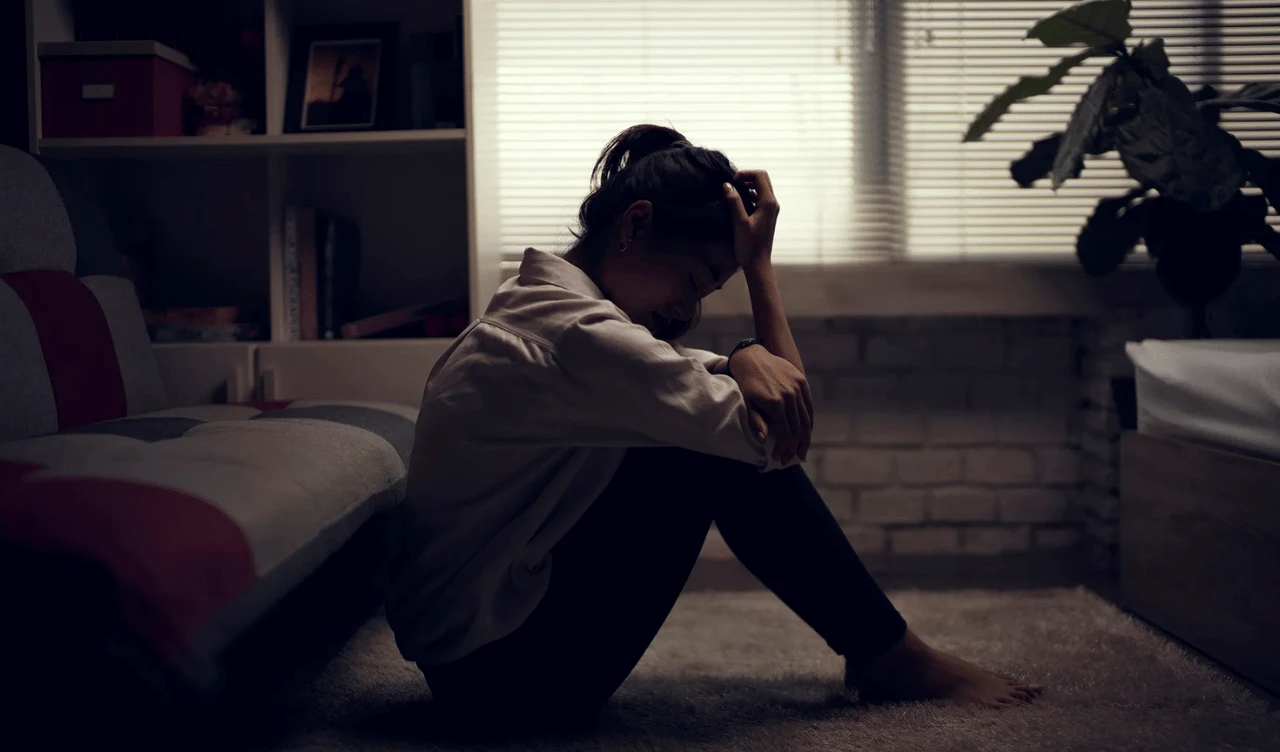Have you ever felt like you just don’t have the energy to get through the day? Or maybe things that used to make you happy no longer feel enjoyable? Feeling tired or sad once in a while is normal. But when these feelings last for weeks and start affecting your daily life, it could be depression.
Depression is more than feeling sad. It's an emotional state that can influence your feelings, thoughts, body, and how you perceive yourself and the world. Fortunately, it is treatable, and even tiny steps can get you going in the right direction.
Today, we're discussing 10 typical signs and symptoms of depression, what they may look like in everyday life, and how to begin to feel better naturally.
1. You Don't Like Things That Used to Make You Happy
One of the biggest depression symptoms is losing interest in things that used to make you feel good. This is referred to as anhedonia. You may stop playing your favorite games, listening to music, or hanging out with friends. Even watching a movie or reading a book may be too much effort.
Example: You once loved to paint, but now your paint supplies are put away, and you haven't touched a brush in weeks.
2. You Feel Tired All the Time
Individuals experiencing depression usually feel extremely tired, even when they've done nothing. You may have no energy as soon as you wake up. This is because depression can influence your sleep and deplete your mental energy. You might even feel physically heavy or sluggish.
Example: Simply getting out of bed and brushing your teeth is a huge chore. That you'd just as soon stay under the blankets all day long.
3. You Sleep Too Much or Too Little
Sleep changes are one of the most obvious signs and symptoms of depression. Some sleep the entire day and are tired, while others have difficulty falling asleep or staying asleep. This makes it difficult to concentrate or enjoy daily activities.
Example: You lie awake from 10pm until 3am or you sleep for 12 hours but wake up still feeling drained.
4. Your Appetite Has Changed
One of the signs is eating too much or too little. Depression can influence your hunger and lead to weight changes.
Example: You may be constantly snacking throughout the day to get through it, or omitting meals because you just don't feel like eating. It can also happen in seasonal depression symptoms, many people get hungrier and gain weight in the winter months.
5. You Can't Focus or Think Clearly
When you're depressed, it's difficult to focus or make decisions. Your mind may feel slow or a fog.
Example: You begin reading an article but can't recall what you've just read. You easily get distracted and forget to do simple things.
6. You Feel Hopeless or Helpless
Depression usually leaves you with the feeling that things will never improve. You might feel that nothing you do counts, or that you're a burden to others.
Example: You just keep thinking, "What's the point?" even when something positive occurs. You may feel trapped, as though you can't escape.
7. You Get Easily Irritated
Depression does not necessarily appear as sadness. It may make you angry, frustrated, or annoyed, even with little things.
Example: You scream at your family member or friend over a minor error, and then you feel guilty and puzzled as to why you acted so irrationally.
8. You Avoid People
If you stop responding to messages and making plans, it may cause depression. Being around people can be draining even if you do miss them.
Example: You keep canceling plans with your best friend and stop answering phone calls, even though you secretly want someone to call. This is often one of the very typical symptoms of depression in women, particularly when accompanied by guilt or anxiety.
9. You're Hard on Yourself
Most individuals with depression criticize themselves. You may think you're not good enough or always get things wrong.
Example: You remember to do one task, and your mind tells you that you're lazy or worthless—despite it being just a tiny thing.
10. You Feel Physical Pain
Depression is more than just a bad mood. It can bring on actual physical pain such as headaches, backaches, or digestive issues, particularly if they have no medical basis.
Example: Your shoulders are always tense, your belly aches for no apparent reason, or you have frequent migraines.
How to Feel Better Naturally
Although medication and therapy may be effective, most people treat their depression with natural routines as well. If you're down, try some of the following simple steps. Keep in mind: start small, and ease up.
1. Spending 15–30 minutes outside every day can lift your mood. Sunlight helps your body make vitamin D, which supports emotional health.
2. You don’t need to go to the gym. A short walk, gentle yoga, or stretching can make a difference. Moving your body releases endorphins, which are feel-good chemicals.
3. Your brain requires healthy food to work optimally. Try to add fruits, vegetables, and foods with omega-3s (such as fish, walnuts, or flaxseed). Drink plenty of water, as well.
4. Depression makes everything seem insurmountable. A simple routine can provide structure and comfort.
5. Social media might make you feel crappier, particularly if you're comparing your life to others. Attempt to limit your screen time, particularly before bed.
6. Deep breathing relaxes your body. Experiment with inhaling for 4 seconds, holding for 4, and exhaling for 4. Repeat for a few minutes when you feel nervous.
You don't need to tell them everything, simply stating, "I'm having a difficult day" can be sufficient. Confronting a friend, relative, or counselor can alleviate the burden you're carrying.
Final Thoughts
Depression might make you think nothing will ever change. But hold on to this fact: you can improve. Healing takes time. It does not occur overnight, but everything counts. If you or someone you know is experiencing these symptoms and signs of depression, rest assured that you are not alone. Millions of people experience this and many of them improve over time, with support, and with care.
Give the simple habits listed here a go. Even a single small change is a step in the right direction. And if you're worried that things are too much to handle by yourself, please speak to an expert. Asking for assistance is a good and courageous thing to do. You are worthy of feeling better. You are important.





